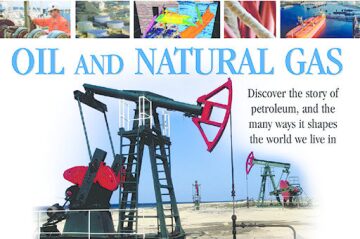What is the mission of the Society of Petroleum Engineers (SPE)? Why do we collect, disseminate, and exchange technical knowledge? There are plenty of reasons why such activities are valuable. Our mission statement gives a reason for this activity, namely, for the public benefit.
Mission statements of various professional societies often reflect the need to serve the public in some way. The American Society of Mechanical Engineers’ mission statement includes its purpose “to serve diverse, global communities” and “applying engineering knowledge for improving the quality of life.” The mission of the American Institute of Chemical Engineers is to “provide essential value to our members and partners, advance civil engineering, and serve the public good.” The mission of the National Academy of Engineering is “to advance the well-being of the nation.”
The mission of SPE is:
"To collect, disseminate, and exchange technical knowledge concerning the exploration, development and production of oil and gas resources, and related technologies for the public benefit; and to provide opportunities for professionals to enhance their technical and professional competence."
The mission was adopted more than 50 years ago. The statement about providing opportunities for professionals to enhance their technical and professional competence forms the basis of many of the Society’s training and professional development activities. The phrase I have emphasized is occasionally replaced by ellipsis in SPE Powerpoint presentation and not discussed enough. Before we discuss SPE’s role for the public benefit, let us look at engineering’s role.
Engineers are uniquely responsible for the machines, buildings, energy, and technology that surround us and are fundamental to our lives. After the Unconventional Resources Technology Conference in San Antonio, Texas, this year, I revisited the Espada Aqueduct built in 1731, completed in 1745 by Franciscan missionaries to provide water for irrigation. It reminded me of the Roman aqueducts built as early as 300 BC and other feats of engineering that resulted in improved health, sanitation, and productivity in societies. The state of engineering at the time was craft work relying on working knowledge of construction, geometry, and fluid flow principles. This type of engineering dates back to the pyramids.
Modern engineering developed in parallel with the industrial revolution, powered by coal.
The first engineers in the United States either came from Western Europe or were “self-proclaimed” engineers. The first US engineering schools were modeled after the École Polytechnique’s system, developed in France in the 18th century. By 1900, more than 4,500 baccalaureate degrees had been awarded, and the model for engineering education was established.
Petroleum engineering began humbly in the late 19th century, following the demand for petroleum (initially used for lighting, and then for transportation) and the development of drilling techniques that could deliver wells safely. Academic degrees in the field were first awarded in 1915. The earliest textbook in petroleum engineering is generally credited to professor Lester C. Uren, after whom our Society has named an award for distinguished achievement in the technology of petroleum engineering by an individual younger than age 45.
The model for education of engineers in the US changed focus in the 1940s because of the war effort, with an increased emphasis on mathematics and applied science. The number of engineering graduates skyrocketed. It is in this context that the SPE was founded. The professional status of engineers was improved as demand and appreciation for their knowledge and skills increased.
In a 1958 commencement address, Julias Stratton, president of Massachusetts Institute of Technology from 1959 to 1996 said, “The engineer must have … above all, an unfailing sense of responsibility toward his client and the public good.”

Exactly what do we owe the public? How does collecting, disseminating, and exchanging technical knowledge about the upstream oil and gas industry benefit the public?
In meeting a society’s needs, “engineering is deeply involved, as perhaps no other profession, in serving the public interest.” The protection of public health, safety, and welfare is clearly central to our obligation to the public. For multiple reasons, including how we are employed and the nature of the industry in which we work, petroleum engineers rarely do pro bono work for clients as attorneys might. Our volunteer work for SPE in committees, writing papers, educating the public, and many other forms of service is pro bono and is part of our ethical obligation as engineers to the profession and society.
SPE does not specifically support charitable or humanitarian activities that are unrelated to our mission as a society. We are authorized to make small humanitarian donations to emergency relief organizations around the globe in countries where we have local sections. In recent years, SPE donated to aid and relief projects for the 2013 typhoon disasters in Taiwan and the Philippines. Last year, the Society donated to the US Centers for Disease Control and Prevention Foundation to help fight the Ebola virus in Liberia.
SPE supports several educational efforts designed to benefit the public. Many members participate in our energy education program. The energy4me program offers factual, timely information about the industry to pre-university students, teachers, and the public to influence how the industry is perceived globally and locally.
At our technical events across the globe, energy4me conducts workshops for students and teachers to demonstrate the science behind oil and gas exploration and development. Grades 4 to 12 teachers are given books and lessons for implementation in school. To date, energy4me has trained more than 3,000 teachers and distributed more than 50,000 Oil and Natural Gas books across the globe. These activities are also helpful in creating awareness in the public and mainstream media about the industry and the technology behind it. In our effort to go beyond the headlines about hydraulic fracturing, we have created a website, presentation materials, and webinars to help our members speak to their family, friends, and neighbors about the subject. JPT frequently includes a “Beyond the Headlines” column that highlights topics related to hydraulic fracturing.
Individual SPE members often donate generously of their time and financial resources to charities and humanitarian causes. With the great wealth of the early founders of the petroleum industry, targeted giving for the establishment of libraries, universities, hospitals, etc., by the industry pioneers became the norm. While such activities are admirable, they are distinct from serving the public good.
What we do as engineers and earth scientists to provide safe, affordable energy is a definite public benefit, even if it is not perceived as such. The activities of SPE serve the public benefit by providing best practices and knowledge that improve our individual and collective abilities to explore for, develop, and produce oil and gas resources. This leads directly to conservation of oil and gas resources, improved safety, and a cleaner environment. Conservation improvements include increased recoveries and elimination of economic and hydrocarbon waste.
The public benefit is served as safe, affordable energy is developed. Improved economics lowers the marginal costs and ultimate prices paid by society for energy. Low-cost natural gas decreases reliance on coal for electricity generation, thus reducing greenhouse gas emissions. Safe, affordable energy helps us grow and transport food for the world, live in places that would otherwise be uninhabitable, and distribute medical care globally. It also provides or enables hundreds of other things that make life better around the world.
So, as you go to work every day, remember there is a public benefit from the work you do, and be grateful you can apply your talents to our mission.


